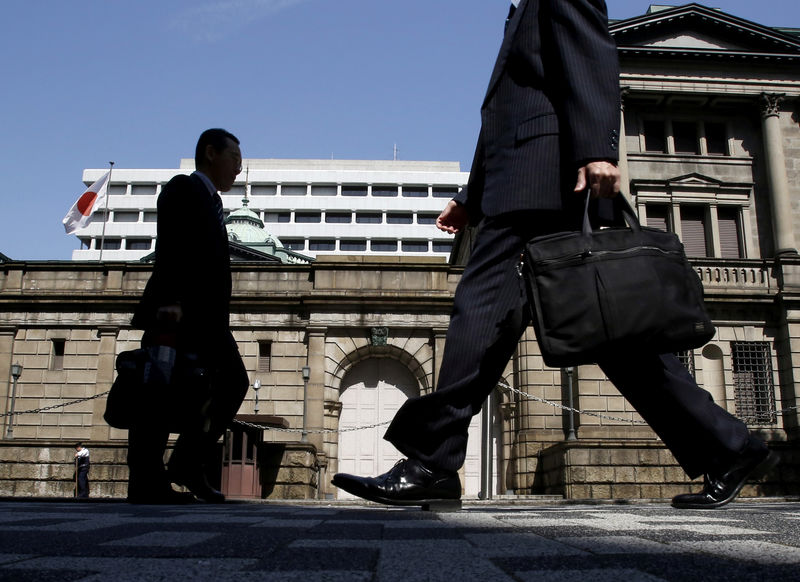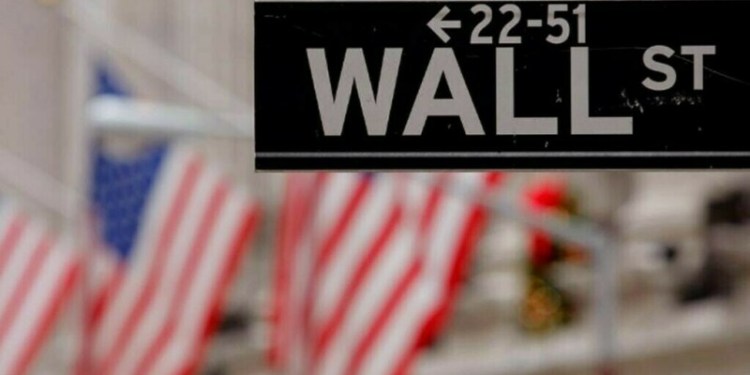 © Reuters. FILE PHOTO – People walk on a street in front of the Bank of Japan headquarters in Tokyo
© Reuters. FILE PHOTO – People walk on a street in front of the Bank of Japan headquarters in TokyoBy Leika Kihara
TOKYO (Reuters) – Japan’s central bank will likely debate on Friday structural factors that may be dragging on inflation, which has been disappointingly weak and could make talk of an exit from ultra-loose monetary policy a distant prospect.
At its two-day rate review ending on Friday, the Bank of Japan is widely expected to keep its short-term interest rate target at minus 0.1 percent and a pledge to guide 10-year government bond yields around zero percent.
The delay in pulling out of crisis-era stimulus would leave the Bank of Japan with a lack of ammunition to fight another economic downturn, even as its U.S. and European peers start restocking their tool-kit.
Subdued wage and price growth, despite a solid economic recovery, has been a nagging problem not just for Japan but the Federal Reserve and the European Central Bank, which met for rate reviews this week.
But factors unique to Japan, such as two decades of deflation that made firms and households accustomed to low wages, could keep the BOJ’s 2 percent inflation target elusive for years, say Jin Kenzaki, senior economist at NatWest Markets Securities Japan.
“In Japan, people are used to many services being free of charge. That’s why services prices don’t rise much. Inflation expectations are also weak,” he said.
“We expect the BOJ to cut its inflation forecasts in July and concede its target won’t be met until fiscal 2020. If so, it’s hard for the BOJ to debate an exit from easy policy.”
The central bank will stick to its view the economy continues to expand moderately, shrugging off the first-quarter contraction as a soft patch, say sources familiar with its thinking.
Given recent weak inflation, the nine board members may look more closely into factors that may be holding back price growth such as innovation and online shopping, they say.
While the findings likely won’t be revealed until a subsequent meeting in July, Governor Haruhiko Kuroda may offer some hints at a post-meeting news conference, analysts say.
Markets are also on the look-out for what Kuroda could say on escalating trade frictions and U.S. President Donald Trump’s threat to impose tariffs on auto imports – both risks to the export-reliant economy, analysts say.
Kuroda is expected to brief media on the BOJ’s policy decision at 3:30 p.m. (0630 GMT).
Japan’s economy shrank an annualized 0.6 percent in the first quarter, though many analysts expect growth to bounce back on solid exports and capital expenditure.
Core consumer prices rose 0.7 percent in April from a year earlier, slowing for the second straight month, casting doubt on the BOJ’s view a solid recovery will prompt firms to raise wages and help accelerate inflation to its 2 percent target.
Fusion Media or anyone involved with Fusion Media will not accept any liability for loss or damage as a result of reliance on the information including data, quotes, charts and buy/sell signals contained within this website. Please be fully informed regarding the risks and costs associated with trading the financial markets, it is one of the riskiest investment forms possible.
Source: Investing.com

























